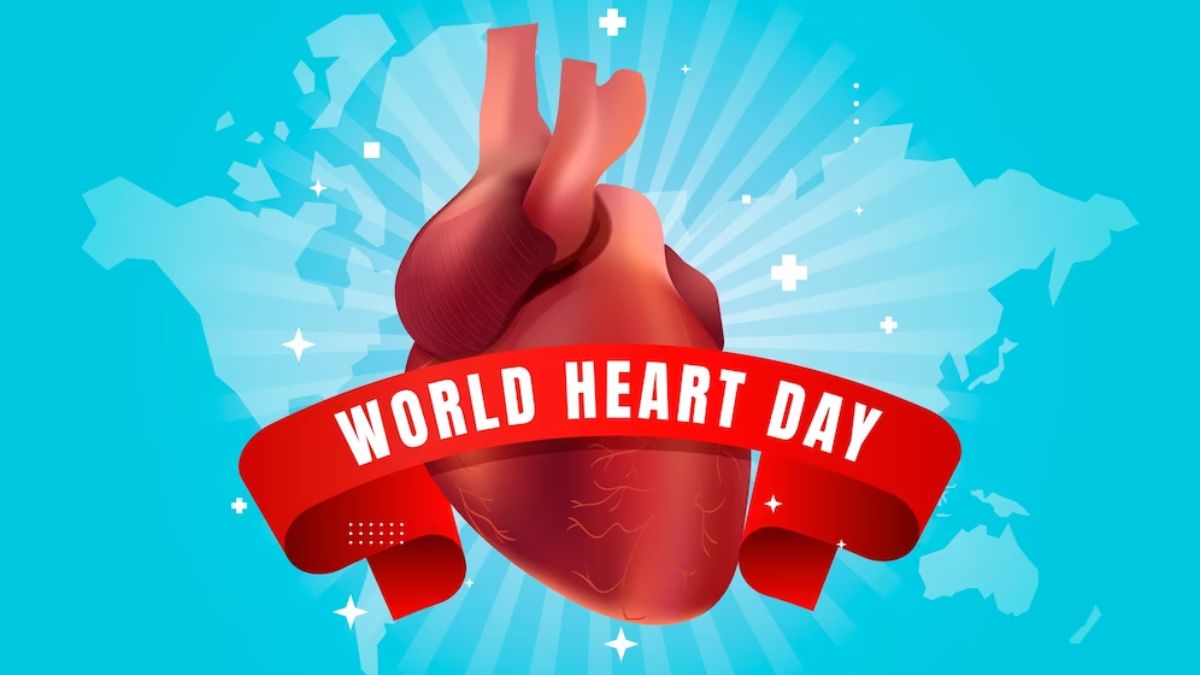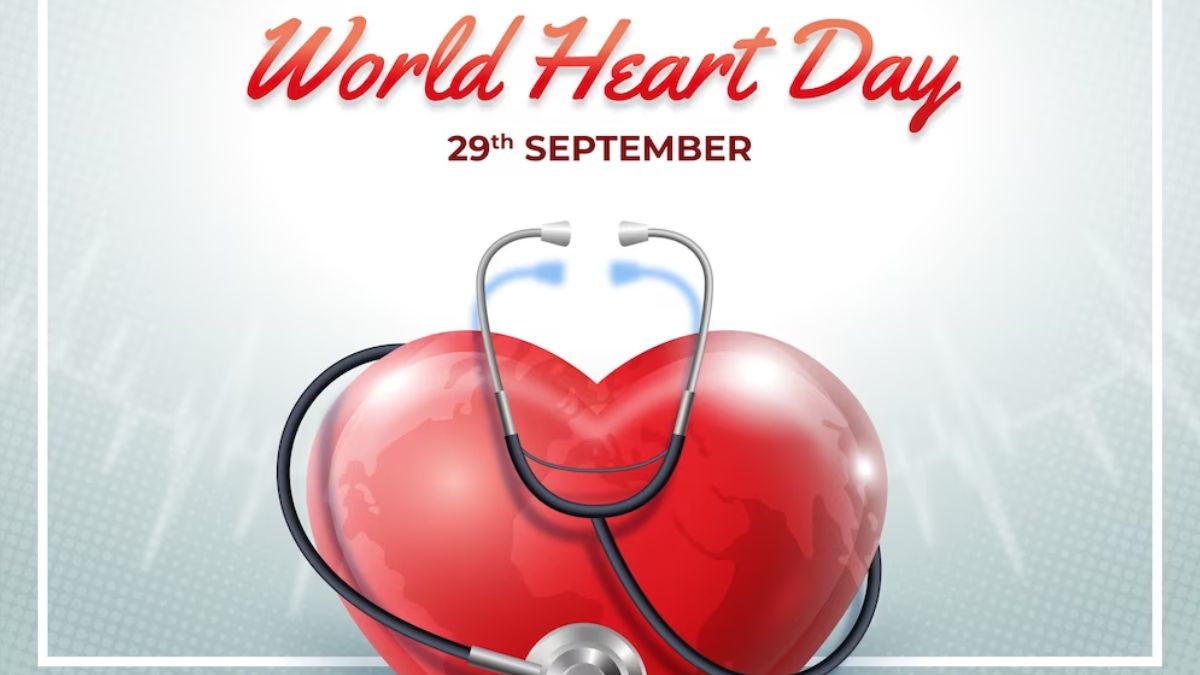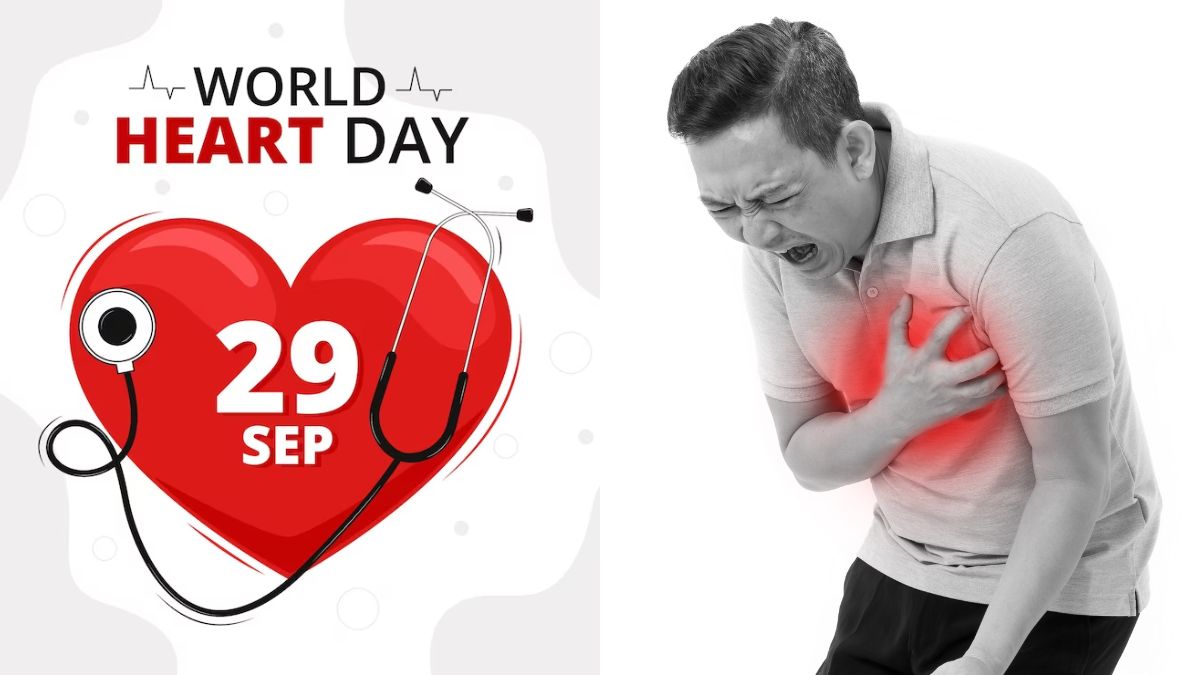- By Priyanka Munshi
- Fri, 29 Sep 2023 11:00 AM (IST)
- Source:JND
World Heart Day 2023: Heart attack which has become a common ailment nowadays, is also referred as myocardial infarction. The primary cause of a heart attack is a narrowing or blockage of the coronary arteries, which provide the heart muscle with oxygen and nourishment. A blood clot may form in the narrower artery as a result of this narrowing, which is frequently brought on by plaque, which is an accumulation of cholesterol and fatty deposits.
A heart attack happens when this clot totally obstructs blood flow to a certain area of the heart. High blood pressure, smoking, diabetes, obesity, and a family history of heart disease are additional risk factors for heart attacks. Heart attack risk factors include heredity and lifestyle decisions, making management and prevention of heart attacks essential.

World Heart Day is a campaign in which governments, families, communities, and people engage in activities to take control of their heart health. (Image Credit: Freepik)
Also here, Dr. Viveka Kumar, who is the Principal Director and Chief of Cath Labs (Pan Max)—Cardiac Sciences at Max Super Speciality Hospital in Saket, told Jagran English about whether a blood test can actually detect a heart attack.
Also Read: World Heart Day 2023: 10 Quotes And Messages That You Can Share On This Day
Dr. Viveka said, "A heart attack occurs when a segment of heart muscle sustains an injury due to blockage of its blood supply by coronary arteries. This injury leads to a constellation of symptoms, typically chest pain, and changes on the ECG. In addition, heart muscle damage also results in the release of proteins into the bloodstream. Since these protein fragments are not usually detected in the blood of a healthy individual, their detection can be used to confirm the diagnosis of a heart attack. The most commonly used blood markers are called cardiac troponins. The two types used in clinical practice are titer I and titer T blood tests. Troponin levels become elevated within a few hours of a heart attack and could remain high for up to 2 weeks."
He further added that "the troponin test may need to be repeated several times to confirm a heart attack in patients who present to the hospital very early following the onset of symptoms. This is because the levels may not be elevated in early presenters. However, for unstable patients, urgent treatment is not delayed while waiting for a positive troponin result, and the doctors will rely on the symptoms and ECG findings. The availability of this test is very important in diagnosing, confirming, or ruling out a heart attack in an emergency room."
What Are The Causes Of Heart Attack?
Unhealthy Food
Your body's cholesterol levels might rise as a result of a poor diet that is high in salt, fat, and sugar. Your artery walls, particularly those in your heart, might accumulate extra cholesterol. This may cause your arteries to stiffen and narrow, lessen the amount of blood getting to your heart, and raise your chance of having a heart attack.

The World Heart Federation established World Heart Day on September 29, 1999, for the first time. (Image Credit: Freepik)
Smoking
Smoking is bad for your heart because it thickens your blood, causes clots, raises your risk of heart disease by clogging your blood vessels with plaque, reduces the amount of blood that gets to your heart, and puts you at risk for heart attacks.
Also Read: 5 Unbeatable Advantages Of Drinking Clove Tea
Excess Booze
Do you know that binge drinking can cause long-term high blood pressure, straining the heart muscle and raising the risk of cardiovascular disease, a heart attack, and a stroke? Excessive alcohol consumption can momentarily raise blood pressure.
High Blood Pressure

Do you know that the high blood pressure, smoking, diabetes, obesity, and a family history of heart disease are additional risk factors for heart attacks. (Image Credit: Freepik)
Heart, kidney, and brain damage from high blood pressure are all substantial risk factors for developing heart disease. It can be controlled by adopting a healthy lifestyle or by taking medicine that a doctor has prescribed.
Inactive Lifestyle
Even in the absence of other risk factors, a sedentary lifestyle raises the risk of heart disease, obesity, high blood pressure, high cholesterol, and type 2 diabetes.

